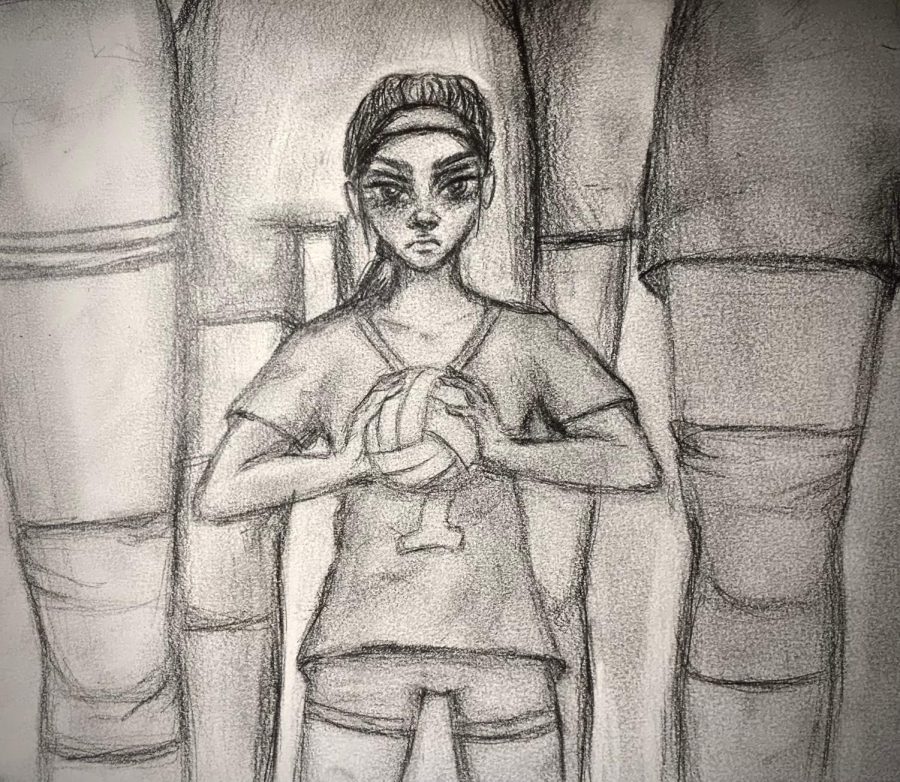My Perspective on Being an “Undersized” Athlete Has Changed
Being part of the “undersized” category creates extra challenges for for athletes, but hard work can always bring positive results. Staff illustration: Tatum Herrin.
March 23, 2021
In sports, bigger is better — or at least that’s how it feels to me. I always thought I was tall at five-foot-nine-inches, but as a volleyball player, I’m technically undersized. I am tall, just not for volleyball.
I am a middle blocker, so I constantly move from sideline to sideline to stop balls from crossing the net. The best middle blockers are typically around six feet tall.
Division I volleyball programs like Wisconsin University select middle blockers ranging from 6-foot-2-inches to 6-foot-9-inches. Even Division II and III programs like Lewis University and Johns Hopkins University have middles from 5-foot-10-inches to 6-foot-2-inches.
The height requirements are also pretty visible at the high school and club level. My teammate is 6-foot-1-inch, and I go up against her every night in practice. I see her advantage: if we did everything exactly the same, she gets priority because her height intimidates other teams and gives her an edge.
For a while, this height advantage was incredibly frustrating and angered me. However, as I got older and better understood the game, this discrepancy made sense.
So instead of deciding that any extra work was pointless because of my height barrier, I worked. Being “undersized” now motivates me. I can’t magically grow to be the “right” height — and I’ve never been a naturally high jumper — but I can put in work to jump higher.
During the lockdown in March 2020, I started using my extra time to weight train. I’m lucky that my dad is a personal trainer and certified weight-lifting coach, so I have a lot of resources just in my garage.
Working for more strength motivated me. I felt more in control of who I was as a player, even if I was “small” I could work to be more athletic and explosive. Seeing results motivates me even more; little changes make me want to keep going, keep working.
Despite all this extra time and work, I still see taller players — who are of course working hard — automatically having an advantage over me. Sometimes I feel that my extra hard work is not worth the time and does not make a difference, but I know it does.
There are always going to be people who are bigger, faster and stronger than me, but that just means I can play with a chip on my shoulder. A chip that drives me because I know that being “small,” I have to prove my worth in other ways, like hard work and commitment. I’ve had to put my ego aside to accept that, and I’ve learned that all I can do is work my hardest.




